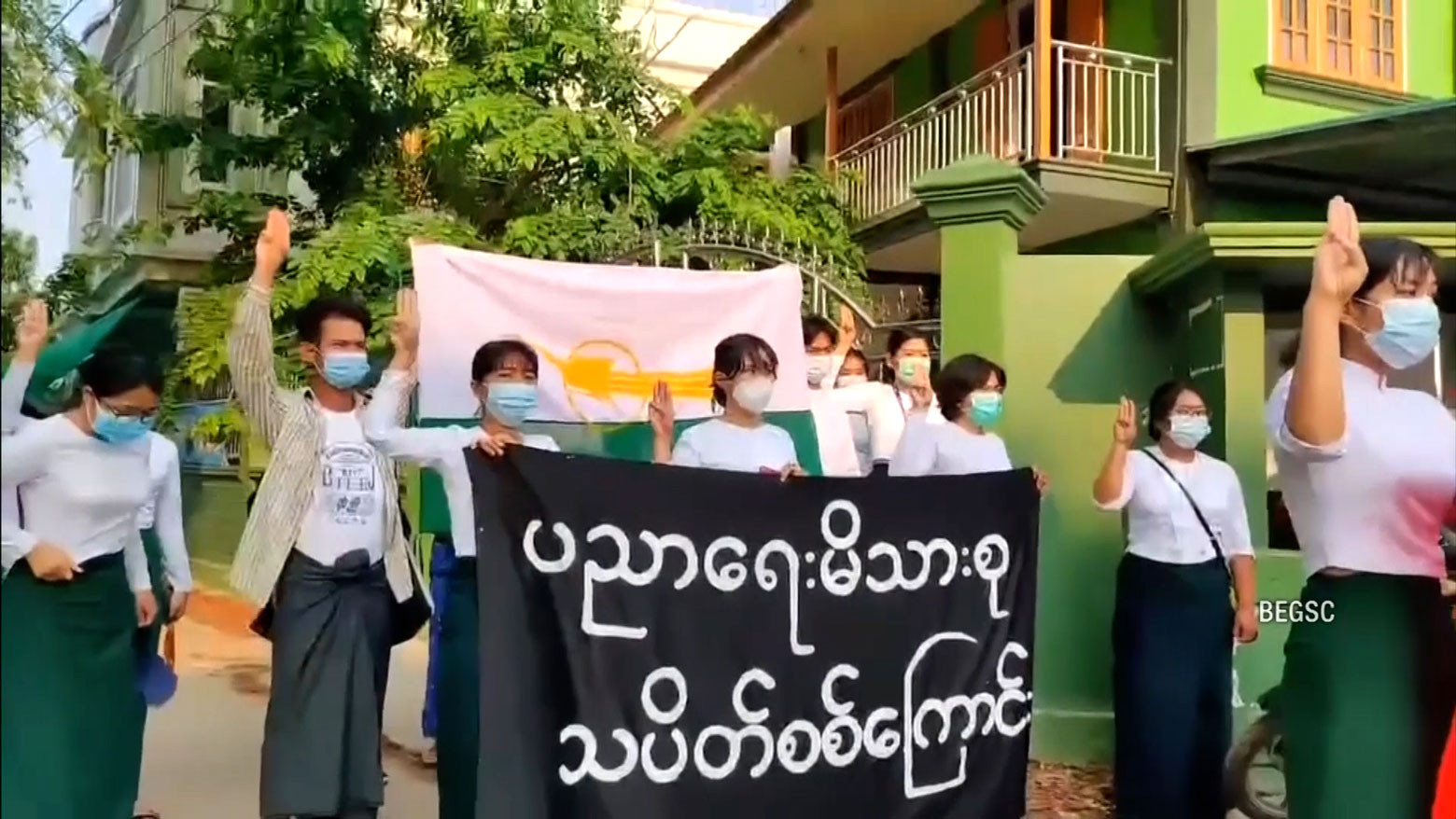The National Unity Government, formed by ousted lawmakers supporting Aung San Suu Kyi, has outlined a parallel basic education system for parents who don’t want to enroll their children at junta-controlled schools. The home-based learning syllabus will be offered both online and offline to allow wider student access.
The NUG’s Education Ministry is planning a new curriculum that supports federal democracy, and is already offering a few short courses to higher education students. Teachers are being called on to contribute more learning content.
In Yangon, a high school chemistry teacher known as Min Aye, is on board. He was suspended from his school after refusing to report for duty, and hopes the new system becomes a long-term success. He plans to draw on his experience at offering online classes.
“Many teachers have had to endure military oppression. At the very least, I will not stop [backing the Civil Disobedience Movement] until the power of the country is transferred back to our elected government,” he says. “I hope that this new education system can replace the old one.”
One of Min Aye’s students, 16-year-old Thein Tun, dreams of studying political science at university. But since the coup, his parents have been reluctant to let him go to school in such an unstable environment.
He says the new education option brightens his future. “I will definitely enroll. It would help me to fulfil my dream,” says Thein Tun.
Teachers under pressure
Teachers who refuse to return to junta-controlled schools are being suspended or sacked.
Htet Oo, a high school teacher in Ayeyarwady, says he stuck with his job because he can’t afford to lose it. In his area, most teachers stayed after they received a letter threatening the loss of two months’ salary.
“Honestly speaking, I don’t like the military, I would like to see it overthrown,” he says. “But my family worries because they see the value in being a teacher. They’re afraid of me becoming unemployed.”
With Myanmar at a crossroads, teachers like Htet Oo face difficult choices about how best to educate the young generation.

